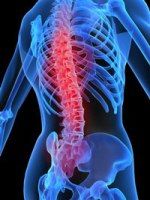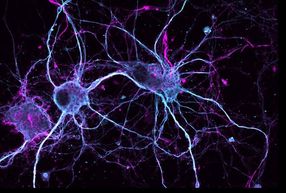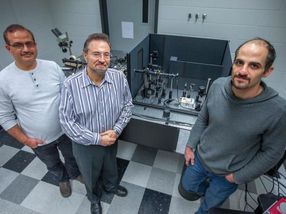Inhibiting serotonin in gut could cure osteoporosis
An investigational drug that inhibits serotonin synthesis in the gut, administered orally once daily, effectively cured osteoporosis in mice and rats reports an international team led by researchers from Columbia University Medical Center, in Nature medicine. Serotonin in the gut has been shown in recent research to stall bone formation. The finding could lead to new therapies that build new bone; most current drugs for osteoporosis can only prevent the breakdown of old bone.
"New therapies that inhibit the production of serotonin in the gut have the potential to become a novel class of drugs to be added to the therapeutic arsenal against osteoporosis," said Gerard Karsenty, M.D., Ph.D., chair of the Department of Genetics and Development at Columbia University College of Physicians and Surgeons, lead author of the paper.
The Nature Medicine paper follows on a major discovery , also made by Dr. Gerard Karsenty's group, that serotonin released by the gut inhibits bone formation, and that regulating the production of serotonin within the gut affects the formation of bone. Prior to this discovery, serotonin was primarily known as a neurotransmitter acting in the brain. Yet, 95 percent of the body's serotonin is found in the gut, where its major function is to inhibit bone formation (the remaining five percent is in the brain, where it regulates mood, among other critical functions). By turning off the intestine's release of serotonin, the team was able, in this new study, to cure osteoporosis in mice that had undergone menopause.
Based on their findings reported in the Cell paper, Dr. Karsenty and his team postulated that an inhibitor of serotonin synthesis should be an effective treatment for osteoporosis. Shortly thereafter, they read about an investigational drug, known as LP533401, which is able to inhibit serotonin in the gut. "When we learned of this compound, we thought that it was important to test it as proof of principle that there could be novel ways to treat osteoporosis with therapies that can be taken orally and regulate the formation of serotonin," said Dr. Karsenty.
Dr. Karsenty and his team developed a research protocol to test their theory, where they administered the compound orally, once daily, at a small dose, for up to six weeks to rodents experiencing post-menopausal osteoporosis. Results demonstrated that osteoporosis was prevented from developing, or when already present, could be fully cured. Of critical importance, levels of serotonin were normal in the brain, which indicated that the compound did not enter the general circulation and was unable to cross the blood-brain barrier, thereby avoiding many potential side effects.
Topics
Organizations
Other news from the department science

Get the life science industry in your inbox
By submitting this form you agree that LUMITOS AG will send you the newsletter(s) selected above by email. Your data will not be passed on to third parties. Your data will be stored and processed in accordance with our data protection regulations. LUMITOS may contact you by email for the purpose of advertising or market and opinion surveys. You can revoke your consent at any time without giving reasons to LUMITOS AG, Ernst-Augustin-Str. 2, 12489 Berlin, Germany or by e-mail at revoke@lumitos.com with effect for the future. In addition, each email contains a link to unsubscribe from the corresponding newsletter.






















































